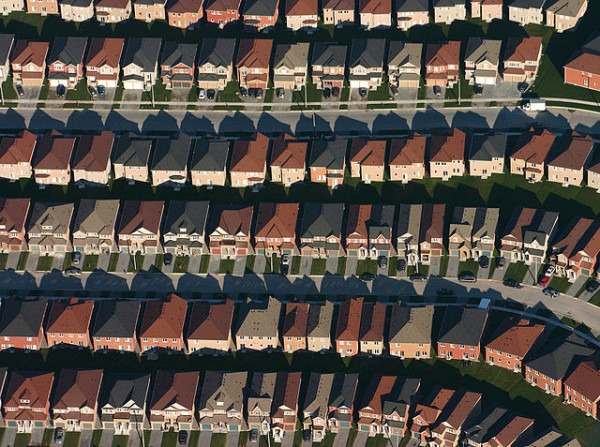As Paul Ehrlich has pointed out over decades, the resource consumption equation has 2 components: population size and per capita consumption. The former is used by greedy capitalists to point fingers at the developing world, but the latter is a first world (at the moment) problem. In Australia, for instance, we use around 35 tonnes of carbon per person per annum, higher than many other developed nations[1]. So while population growth (with all its political ramifications) is a biggie even in Australia, individuals must do more to reduce their per capita consumption.
We often hear of the “dos”, such as DO recycling, but in some ways developing a DON’T list can be more meaningful and easier to adopt by each of us.
Here’s a short list for me as a suburban dweller, based on what I see as a wastage culture around me:
- Don’t move house: While long distance moves to a better lifestyle or to a workplace can be a good thing, a growing phenomenon in my suburb is that of a family picking up stumps and selling only to buy within a few km or closer. Why? One reason is to move to a different school district. Apart from the huge cost of this endeavor (Stamp duty, inspections, legals running into tens of thousands of dollars), there would be a large carbon cost. I believe the rise of the TV reality shows on upgrading or buying new houses has lead to a “restlessness” among the populace, wanting bigger, better, more modern.
- Don’t get a 2nd car: In a city, its pretty much always possible to organise a public transport route to your workplace, in many cases transit time is shorter, comfort level and leisure opportunities greater, and its cheaper (especially when you don’t have to find and pay for a city car space). I travel by train to work and notice a snarl of traffic on the parallel highways, most cars single-occupant, heading to the same destination I am.
- Don’t engage in long distance activities on weekends: Try to restrict your travel on the weekend: I’m thinking particularly of kid sporting activities, sometimes requiring parents to drive 100’s of km per weekend, and shopping. Solutions include car pooling, not going many times to the store, i.e., more planning, multitasking. And picking kids’ sports that take place closer to home.
So the “think globally, act locally” adage needs to be better adopted by a little less consumerism and being happy with what we have.
[1] Heinz Schandl and Thomas Wiedmann, Sept. 2013, Australia’s consumption of natural resources – a report card, The Conversation
David Booth is a Professor of Marine Ecology at the University of Technology Sydney.
MAHB-UTS Blogs are a joint venture between the University of Technology Sydney and the Millennium Alliance for Humanity and the Biosphere. Questions should be directed to joan@mahbonline.org
MAHB Blog: https://stagingphp.com/mahb/blog/consumption-dont-list/
The views and opinions expressed through the MAHB Website are those of the contributing authors and do not necessarily reflect an official position of the MAHB. The MAHB aims to share a range of perspectives and welcomes the discussions that they prompt.
